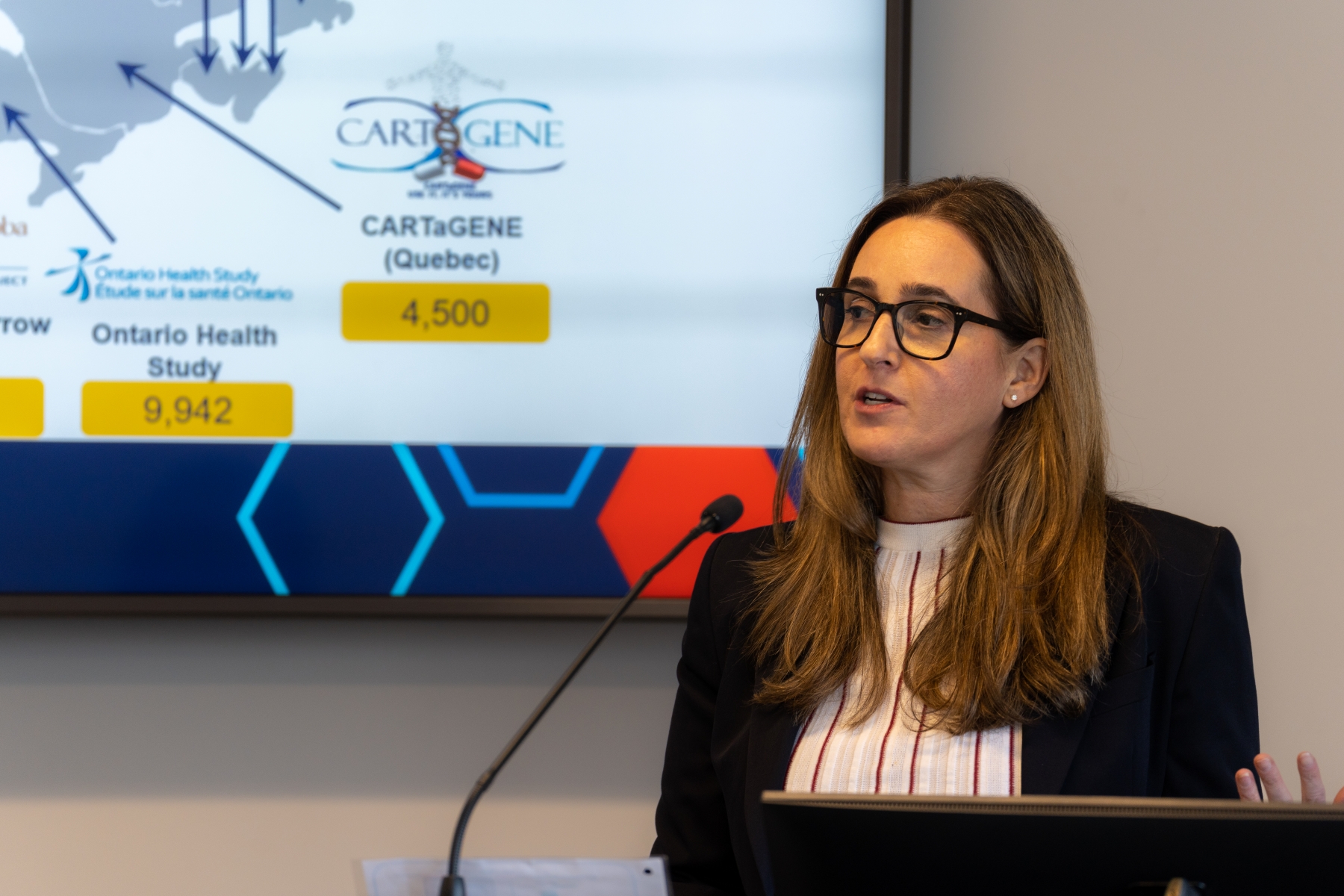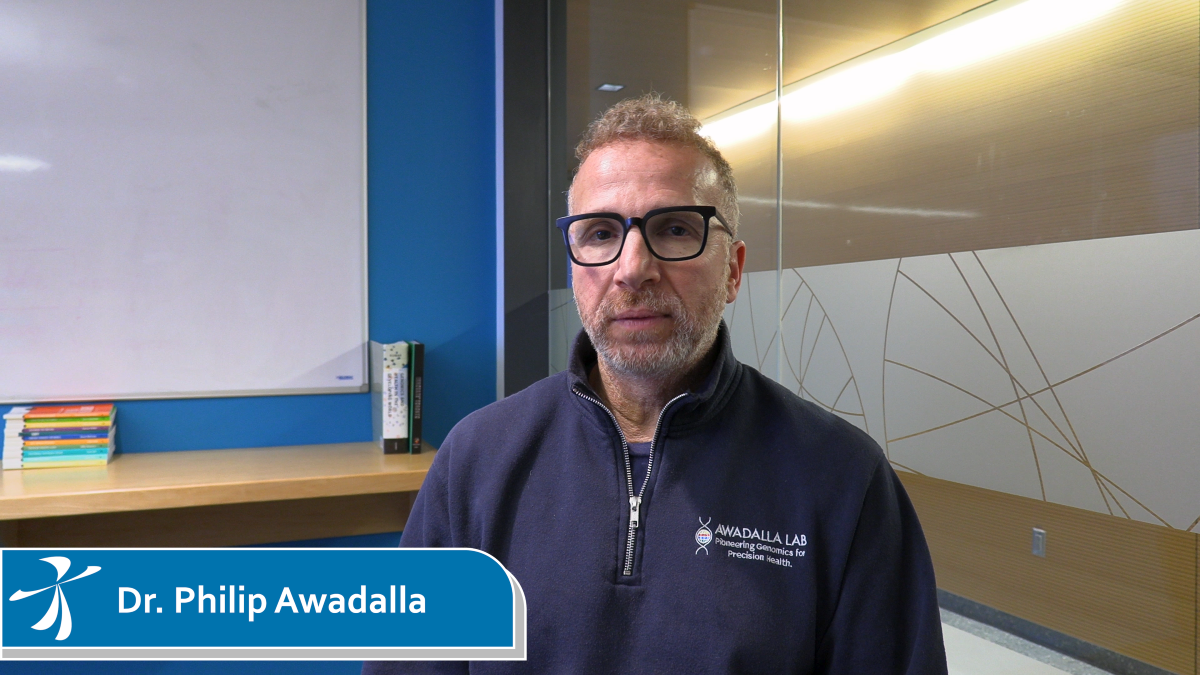For Researchers
A ready-made research platform: data, biosamples and imaging
[Jump to: Approved OHS Research Applications 2012-2025 | Our Research Principles | What’s new in OHS data | Researcher FAQs | Receive Research Updates | Featured Research]
225,000 participants. More than 16 years of self-reported health history, lifestyle and occupational data. Linkage to administrative health and environmental data. Blood samples, genomic data and imaging data. The Ontario Health Study offers a rich and expanding resource for researchers investigating cancer and chronic diseases, available now.
Questions? Contact our Research Operations and Access Officer at access@ontariohealthstudy.ca
Explore the OHS Platform
- Applications using OHS data: 93*
- Applications investigating cancer: 30
- Applications requesting biosamples: 10
- Datasets requested: 91
- ICES data linkages requested: 29
- Ontario Health linkages requested: 9
- Time to project approval (from a fully-complete application): ~60 days
*Includes 32 applications to use OHS data via CanPath
- Projects are evaluated on scientific merit, the impact on OHS participants, and appropriate use of Study resources
- OHS data are amplified when linked with datasets held by other data custodians, such as ICES and Ontario Health
- We provide de-identified data and biosamples to approved investigators for time-limited periods
- We value collaboration among researchers to encourage appropriate use of the Study’s finite resources
- In the spirit of shared scientific benefit, researchers are not given exclusive access to data or biosamples, or exclusive access to an analysis or question of interest
- Now available: Unique questionnaire and physical measurement data for over 4800 OHS participants who visited the Toronto Assessment Centre in 2013-2014
- The OHS has over 3,000 magnetic resonance images of the brain, abdomen, heart and carotid artery provided by consented participants
- The OHS has COVID-19 antibody data for almost 10,000 participants across 3 timepoints
- Genotyping data for more than 20,000 participants
The OHS was designed specifically for investigator-initiated retrospective or prospective research.
Unlike general disease or clinical cohorts, the OHS recruited participants regardless of illness or health, so researchers can follow the changes in participant health and exposures over time. Researchers use OHS data and biosamples to assess the effect of genetics, behaviour, family health history and environment on chronic diseases.
The OHS charges access fees on a cost recovery basis. Fees to access data and biosamples are set annually.
To request a cost estimate for your project, submit a Project Feasibility Assessment Form.
Researchers from industry or with private sector interests may apply for access to data and biosamples, and must meet the same rigorous application criteria and derived data requirements as academic applicants.
For more information on who can access the OHS platform and other requirements, please review the OHS Data and Biosample Access Policy.
OHS links personal, behavioural, environmental, health system and biological data so researchers can investigate cancer and chronic disease causes and determinants.
Of the 225,620 OHS participants (recruited 2009-2017), approximately 200,000 (89%) consented to linkage and 83% have been linked to the Ontario Health – Ontario Cancer Registry. The OHS is also linked to ICES data holdings, and to the Ontario Laboratory Information Systems (OLIS), which captures provincial biologic-based laboratory tests.
OHS participants have been linked to CANUE (the Canadian Urban Environmental Health Research Consortium). Linkages with CANUE and Statistics Canada’s Social Data Linkage Environment program allowed for the capture of historical residential exposures levels for ozone, air pollutants, nighttime light and green spaces, as well as climate and weather, making the OHS an ideal platform to study the effect of climate change on the health of participants.
One of our recruitment strategies included offering incentive-based gift cards or Air Miles. Participants recruited with this strategy have been less likely to contribute to follow-up studies or provision of biologic samples.
If this means that the OHS alone is not adequately powered for certain biospecimen-based research projects, the OHS is also part of the pan-Canadian population cohort, CanPath, that has over 150,000 baseline biospecimens available to approved researchers.
Yes, we help other studies recruit OHS participants to be part of their research projects. We have partnered with several investigators that sought to boost recruitment to their studies, or find matching control groups of participants with appropriate disease or demographic profiles.
Visit our Access and Linkage of OHS Data and Biosamples page to learn more about these ancillary studies. Contact access@ontariohealthstudy.ca to discuss your idea with our Research Operations and Access Officer.
Be the first to know about new data sets, event invites, funding opportunities and more by signing up for the OHS Research Bulletin.





